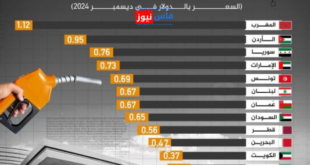Court clerks across the Kingdom of Morocco are set to launch a nationwide work stoppage for three days, expected to bring court sessions to a standstill. Representative bodies of court clerks have announced a strike starting from tomorrow, Tuesday, until Thursday, with plans for another strike on September 3, 4, and 5.
This escalatory step comes as part of the court clerks’ demand for a special statute governing their profession. The National Union of Justice – Democratic Orientation has expressed concern over what it described as the “elimination of the remaining functions” of court clerks in the new Civil Procedure Code bill.
The union has held the Prime Minister responsible for the anticipated tension in the courts, pointing to non-compliance with the April 29, 2024 agreement, which stipulated the continuation of sectoral dialogue to address categorical files and special statutes.
In the same context, the Democratic Union of Justice has called on the government to intervene to spare the sector further tension and ensure the implementation of commitments agreed upon with the Ministry of Justice regarding the statute of the court clerks’ body.
Mohamed Radwan Shabbak, a member of the National Bureau of the National Union of Justice – Democratic Orientation, told Hespress electronic newspaper that the reason for this escalation is due to the failure to implement the special statute for the court clerks’ body. He indicated that the Minister of Justice, Abdellatif Wehbe, had promised to advocate for this statute without achieving tangible results so far.
Shabbak added that the new Civil Procedure Code bill includes withdrawing some tasks from court clerks and granting them to judges, raising concerns about the future role of court clerks in the judicial system.
The unions are demanding a review of the Civil Procedure Code bill, asserting that the agreed-upon draft amendment to the statute of the court clerks’ body is considered a “minimum ceiling not subject to any retreat or negotiation.”
With this tension continuing, it appears that Morocco’s justice sector is heading towards a period of turbulence, which may affect the functioning of courts and litigants in the coming days.
 فاس نيوز ميديا جريدة الكترونية جهوية تعنى بشؤون و أخبار جهة فاس مكناس – متجددة على مدار الساعة
فاس نيوز ميديا جريدة الكترونية جهوية تعنى بشؤون و أخبار جهة فاس مكناس – متجددة على مدار الساعة













